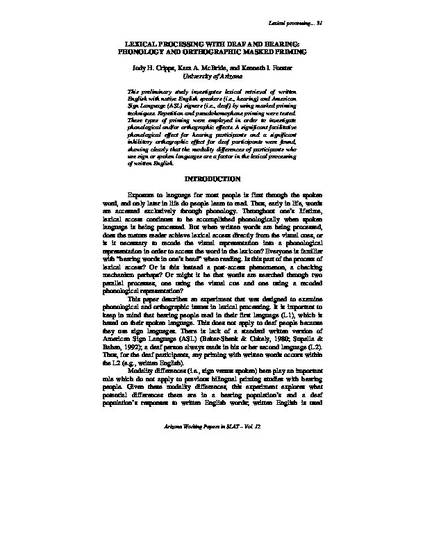
Article
Lexical Processing with Deaf and Hearing: Phonology and Orthographic Masked Priming
Journal of Second Language Acquisition and Teaching
(2005)
Abstract
This preliminary study investigates lexical retrieval of written English with native English speakers (i.e., hearing) and American Sign Language (ASL) signers (i.e., deaf) by using masked priming techniques. Repetition and pseudohomophone priming were tested. These types of priming were employed in order to investigate phonological and/or orthographic effects. A significant facilitative phonological effect for hearing participants and a significant
inhibitory orthographic effect for deaf participants were found, showing clearly that the modality differences of participants who use sign or spoken languages are a factor in the lexical processing of written English.
Keywords
- Deaf People,
- Masked Priming,
- Orthographic Effect,
- Phonological Effect,
- Written English,
- Modality Differences
Disciplines
Publication Date
2005
Publisher Statement
Second Language Acquisition and Teaching, University of Arizona
Citation Information
Jody H Cripps, Kara A McBride and Kenneth I. Forster. "Lexical Processing with Deaf and Hearing: Phonology and Orthographic Masked Priming" Journal of Second Language Acquisition and Teaching Vol. 12 (2005) p. 31 - 44 Available at: http://works.bepress.com/jody-cripps/38/
